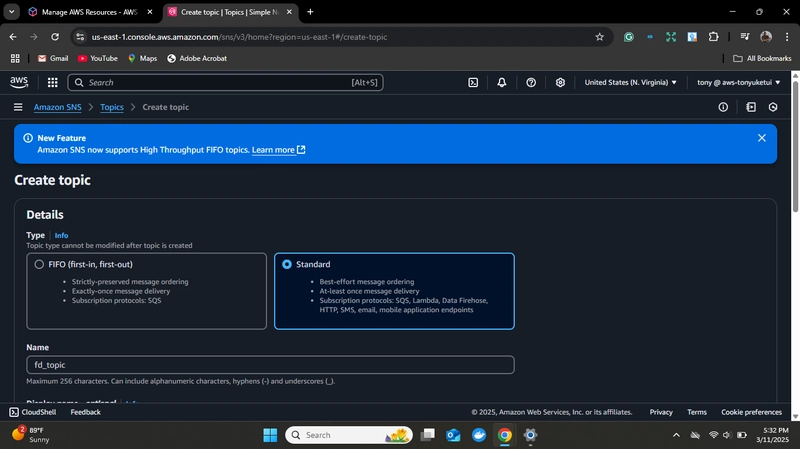Introduction
In this post, I’ll walk you through how I built a serverless application that automatically checks for match schedules and sends email notifications using AWS services. This project leverages AWS Lambda, Amazon SNS, and Amazon EventBridge, demonstrating a practical use case of event-driven architecture in the cloud.
Why I did this?
Checking match schedules manually can be tedious, and missing a match can be frustrating. What if we could automate this process so that users receive timely notifications about upcoming matches?
Solution Overview
To solve this, I created an AWS-based system that:
- Fetches match schedules using a Lambda function.
- Triggers email notifications via Amazon SNS.
- Uses EventBridge as a scheduler to run the Lambda function at set intervals.
Implementation Steps
1. Setting Up the SNS Topic
- Created an SNS topic in the AWS console.
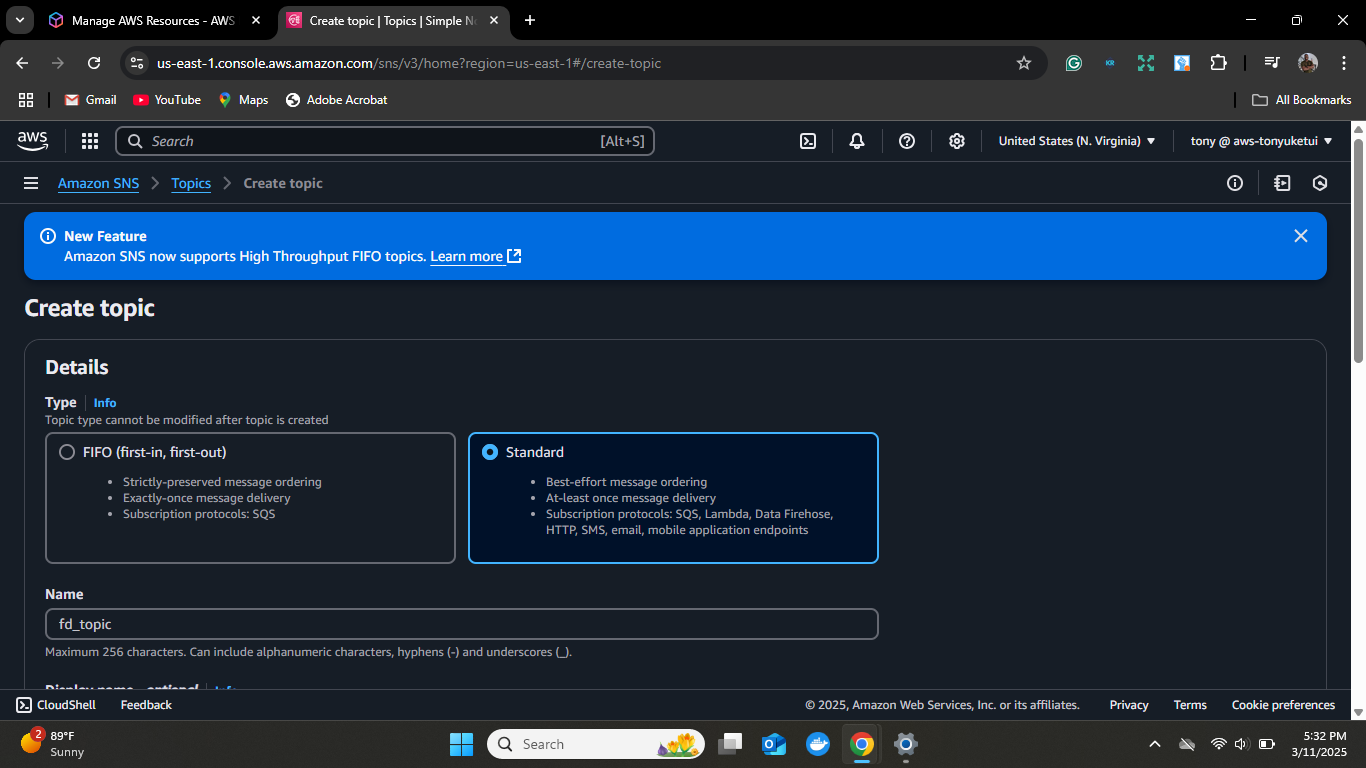
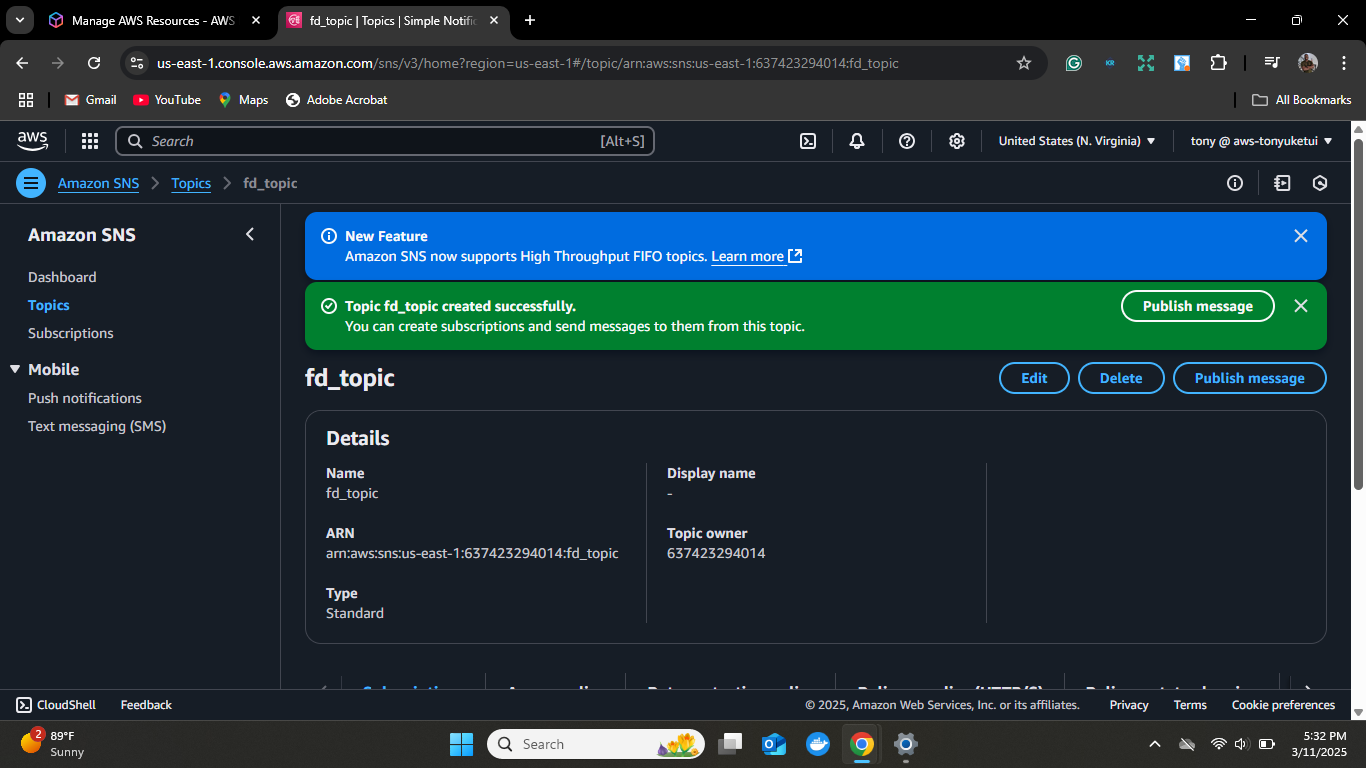
- Added an email subscription to receive notifications.
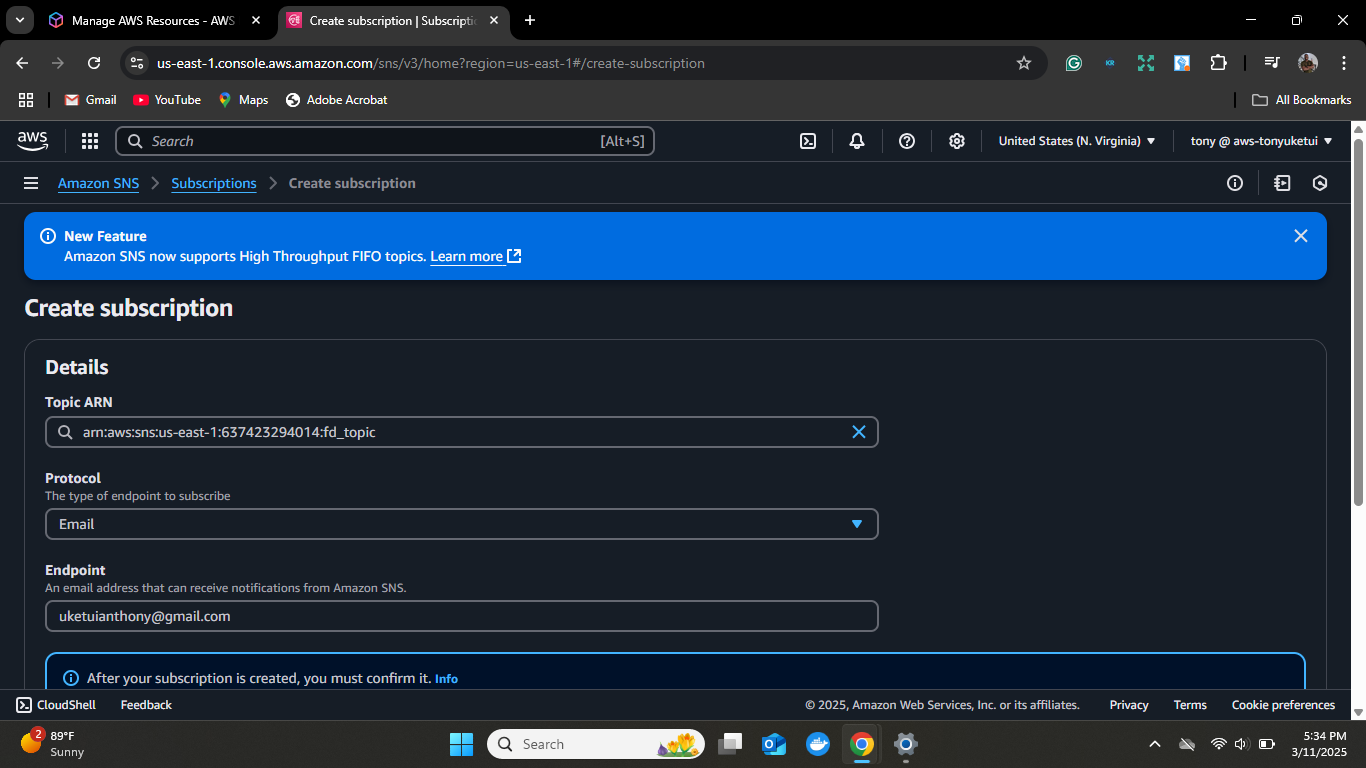
- Confirmed the subscription via email.
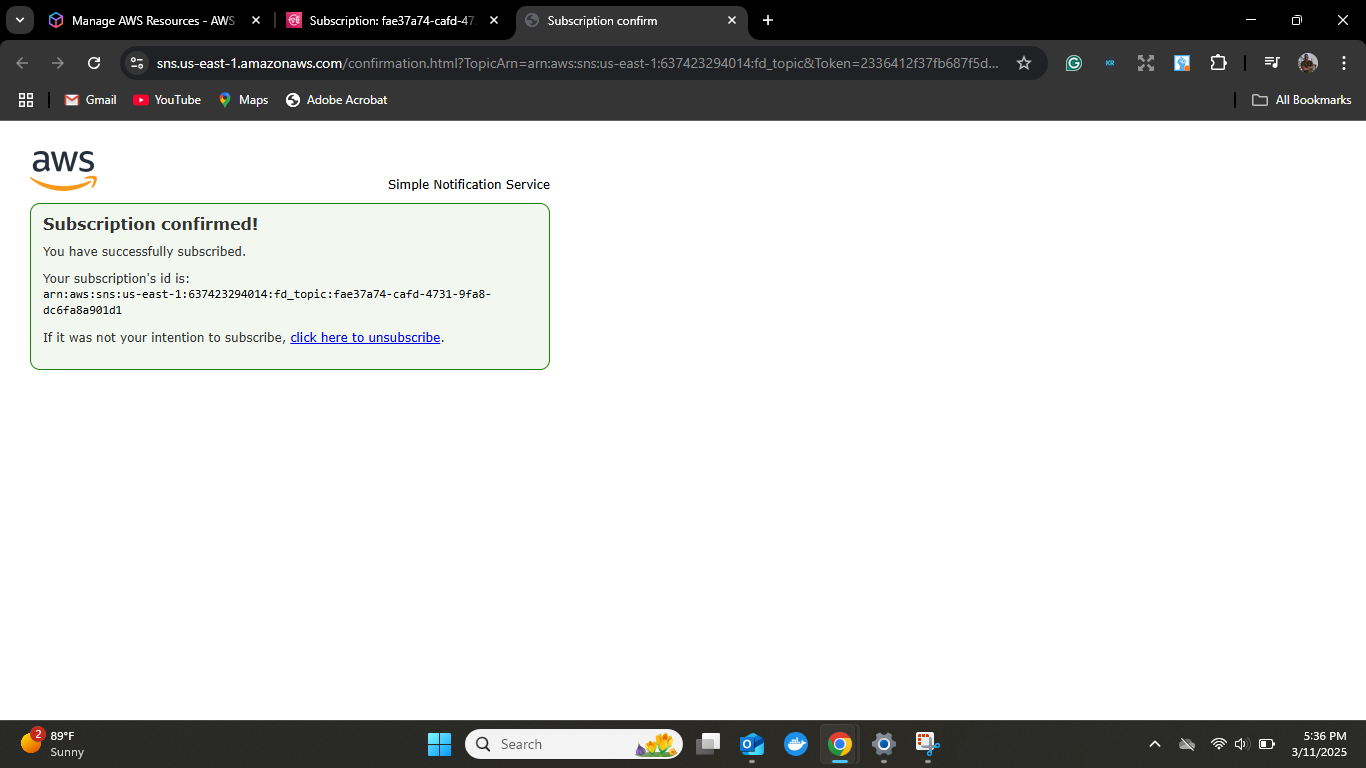
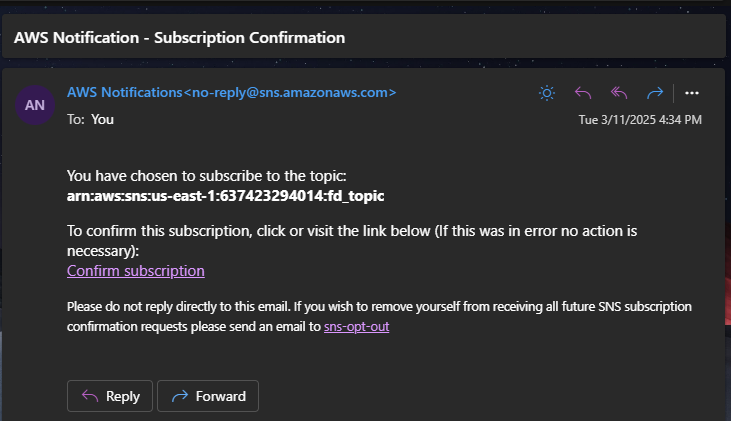
I also created IAM roles and policies so that our SNS topic can communicate with our lambda function
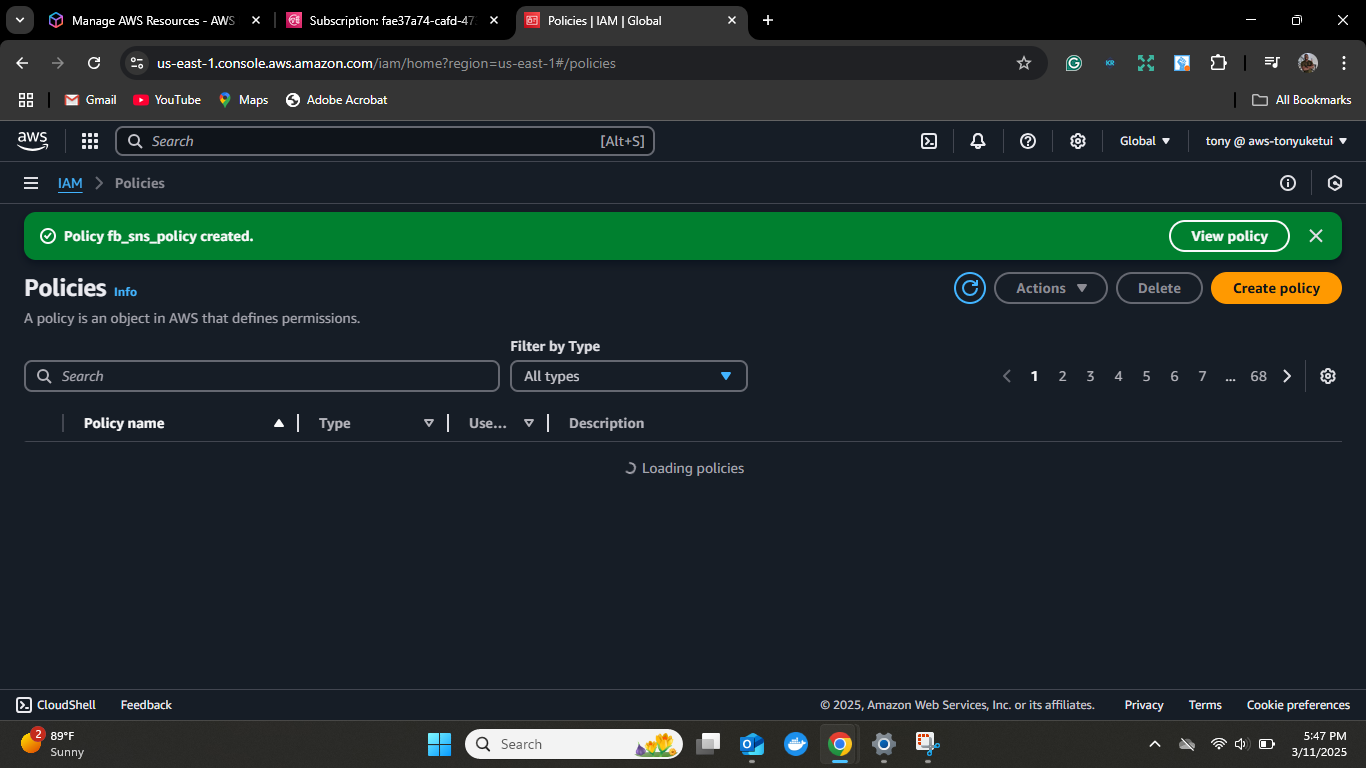
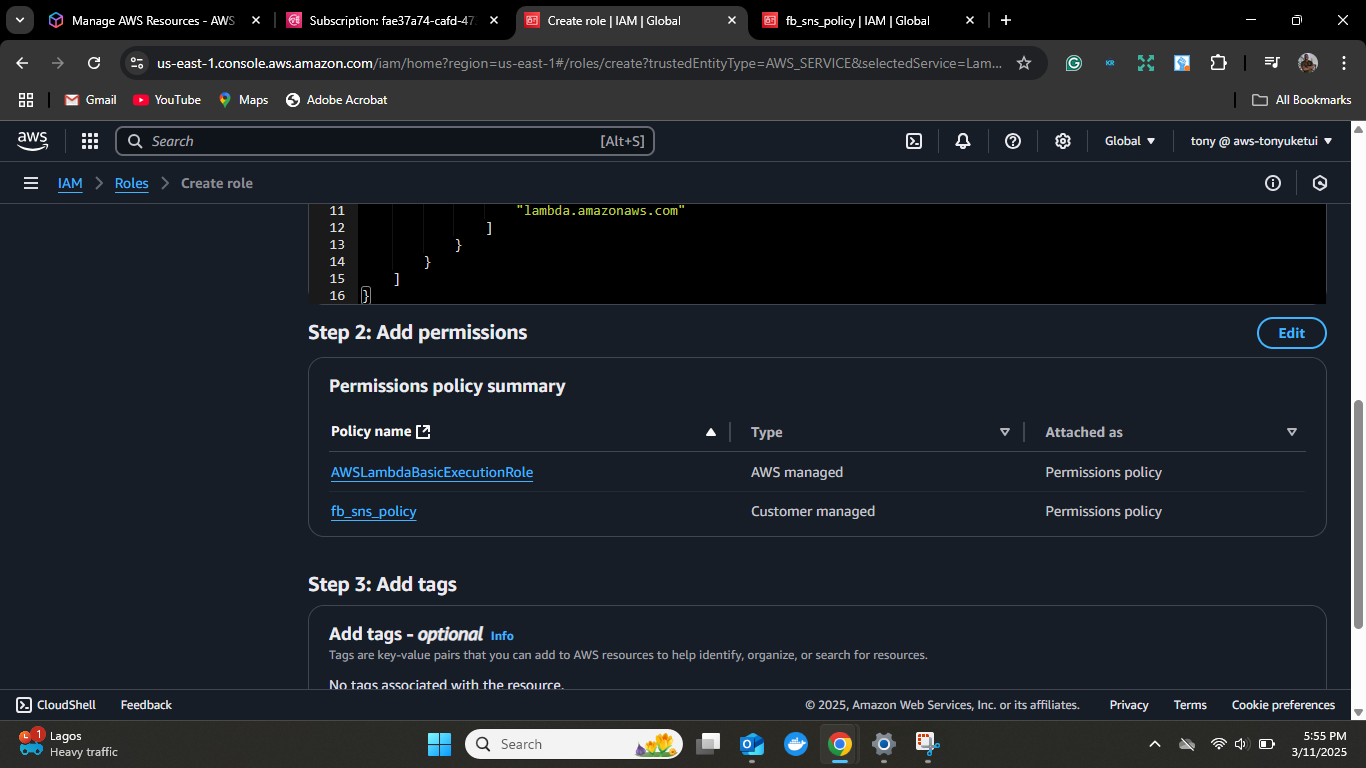
2. Writing the Lambda Function
- I Used Python to fetch match schedules from an API.
- Processed the data and sent a message to SNS.
- Deployed the function to AWS Lambda.
Sample Lambda Code (Python):
import os
import json
import urllib.request
import boto3
from datetime import datetime, timezone
def fetch_football_data(api_url, headers):
request = urllib.request.Request(api_url, headers=headers)
try:
with urllib.request.urlopen(request) as response:
return json.loads(response.read().decode())
except Exception as e:
print(f"Error fetching data from API: {e}")
return None
def format_match_data(match):
status = match.get("status", "Unknown")
home_team = match.get("homeTeam", {}).get("name", "Unknown")
away_team = match.get("awayTeam", {}).get("name", "Unknown")
home_score = match.get("score", {}).get("fullTime", {}).get("homeTeam", "N/A")
away_score = match.get("score", {}).get("fullTime", {}).get("awayTeam", "N/A")
competition = match.get("competition", {}).get("name", "Unknown Competition")
match_time = match.get("utcDate", "Unknown")
if status == "FINISHED":
return (f"Competition: {competition}\n"
f"{home_team} vs {away_team}\n"
f"Final Score: {home_score}-{away_score}\n"
f"Date & Time: {match_time}\n")
elif status == "IN_PLAY":
return (f"Competition: {competition}\n"
f"{home_team} vs {away_team}\n"
f"Current Score: {home_score}-{away_score}\n"
f"Match is in progress!\n")
elif status == "SCHEDULED":
return (f"Competition: {competition}\n"
f"{home_team} vs {away_team}\n"
f"Scheduled Time: {match_time}\n")
else:
return (f"Competition: {competition}\n"
f"{home_team} vs {away_team}\n"
f"Status: {status}\n")
def lambda_handler(event, context):
api_key = os.getenv("FOOTBALL_API_KEY")
sns_topic_arn = os.getenv("SNS_TOPIC_ARN")
sns_client = boto3.client("sns")
# Fetch today's matches
today_date = datetime.now(timezone.utc).strftime("%Y-%m-%d")
api_url = f"https://api.football-data.org/v4/matches?dateFrom={today_date}&dateTo={today_date}"
headers = {"X-Auth-Token": api_key}
print(f"Fetching football matches for {today_date}")
data = fetch_football_data(api_url, headers)
if not data or "matches" not in data:
return {"statusCode": 500, "body": "Error fetching match data"}
matches = data["matches"]
messages = [format_match_data(match) for match in matches]
final_message = "\n---\n".join(messages) if messages else "No matches available for today."
# Publish to SNS
try:
sns_client.publish(
TopicArn=sns_topic_arn,
Message=final_message,
Subject="Football Match Updates"
)
print("Message published to SNS successfully.")
except Exception as e:
print(f"Error publishing to SNS: {e}")
return {"statusCode": 500, "body": "Error publishing to SNS"}
return {"statusCode": 200, "body": "Football match data processed and sent to SNS"}I added an environment variable so our function recognizes the API key and the SNS topic URL
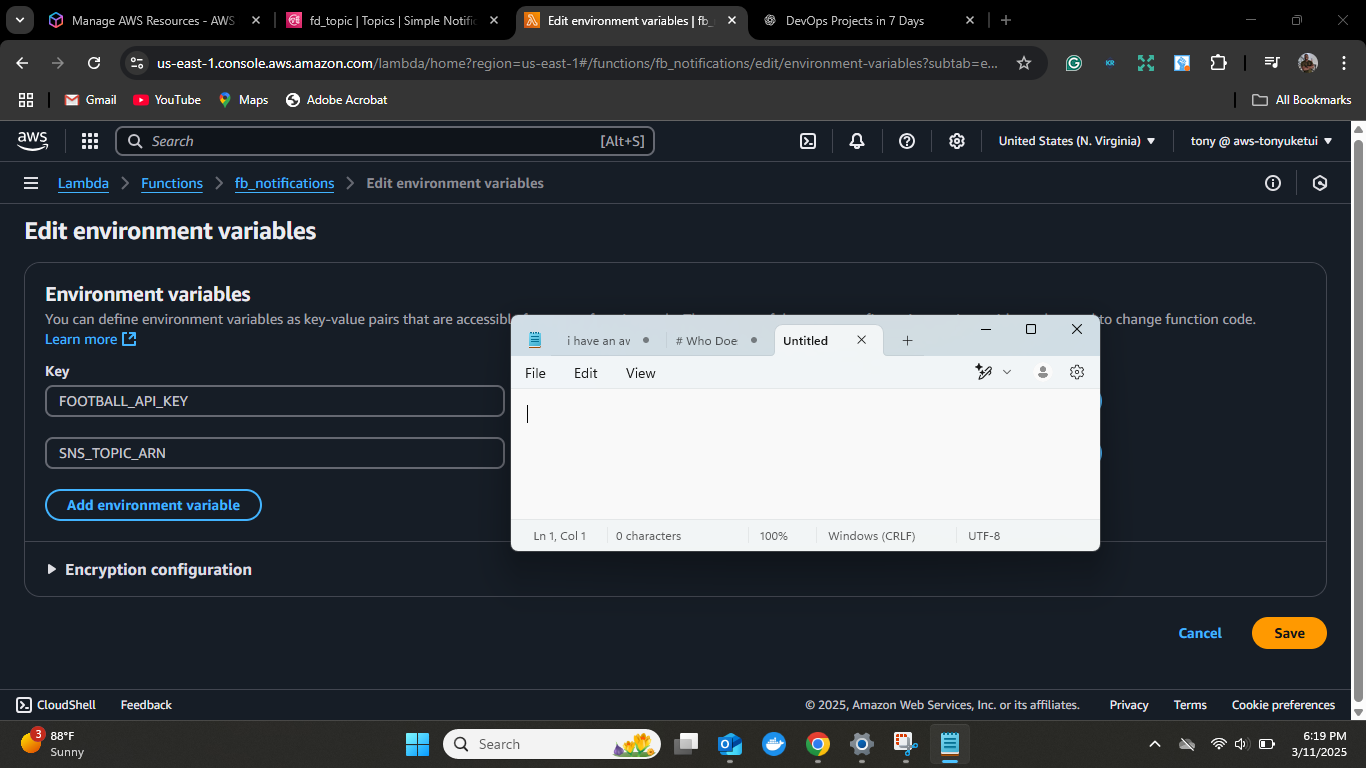
3. Scheduling Lambda with EventBridge
- Created a new EventBridge rule to trigger the Lambda function at specific times.
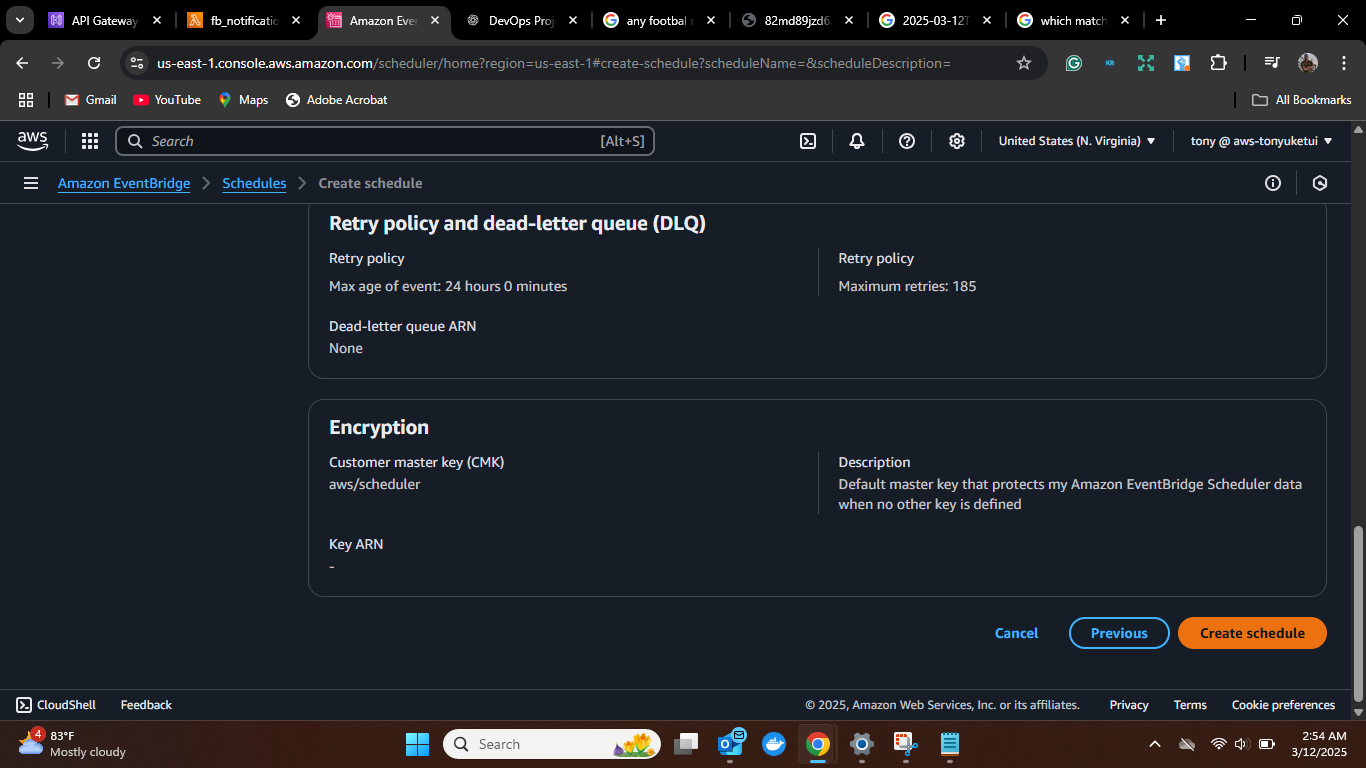
- Configured it to run daily or at specific match times.
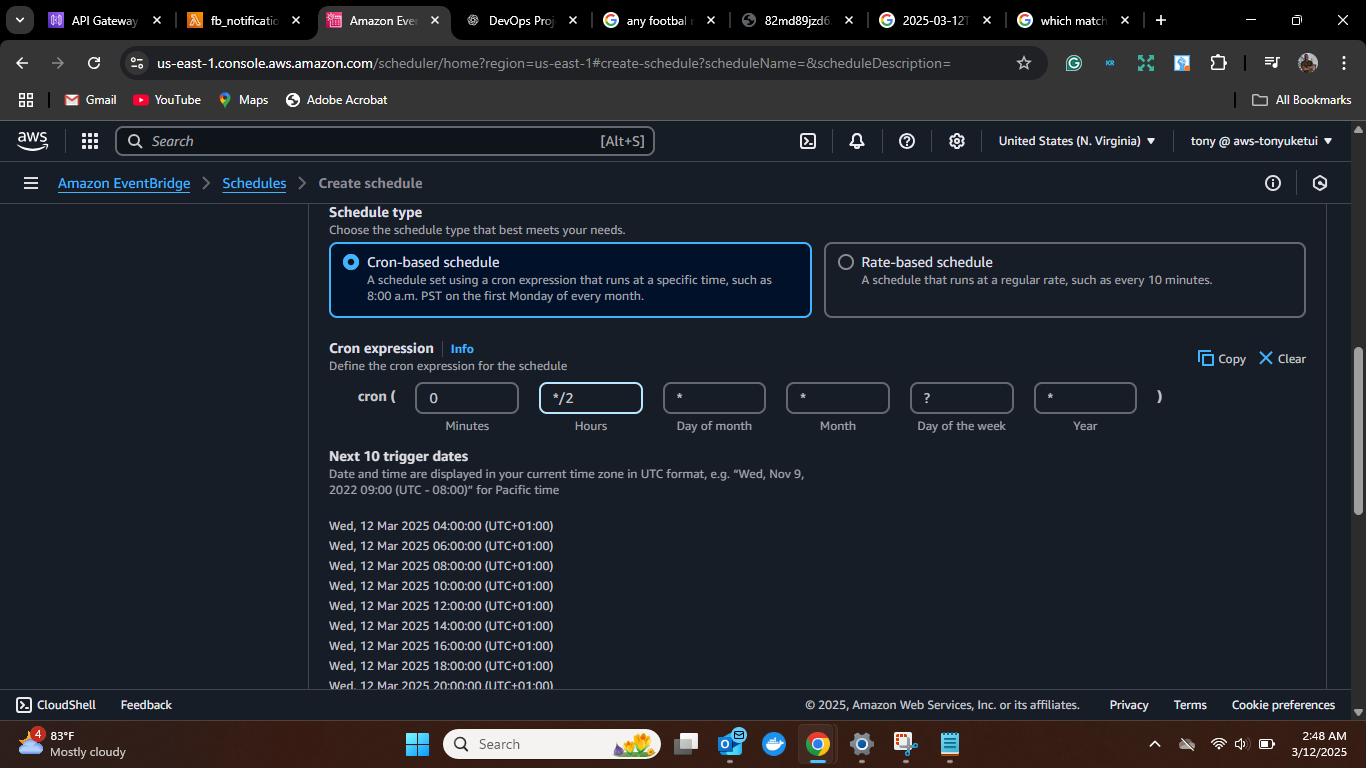
- Linked the rule to the Lambda function.
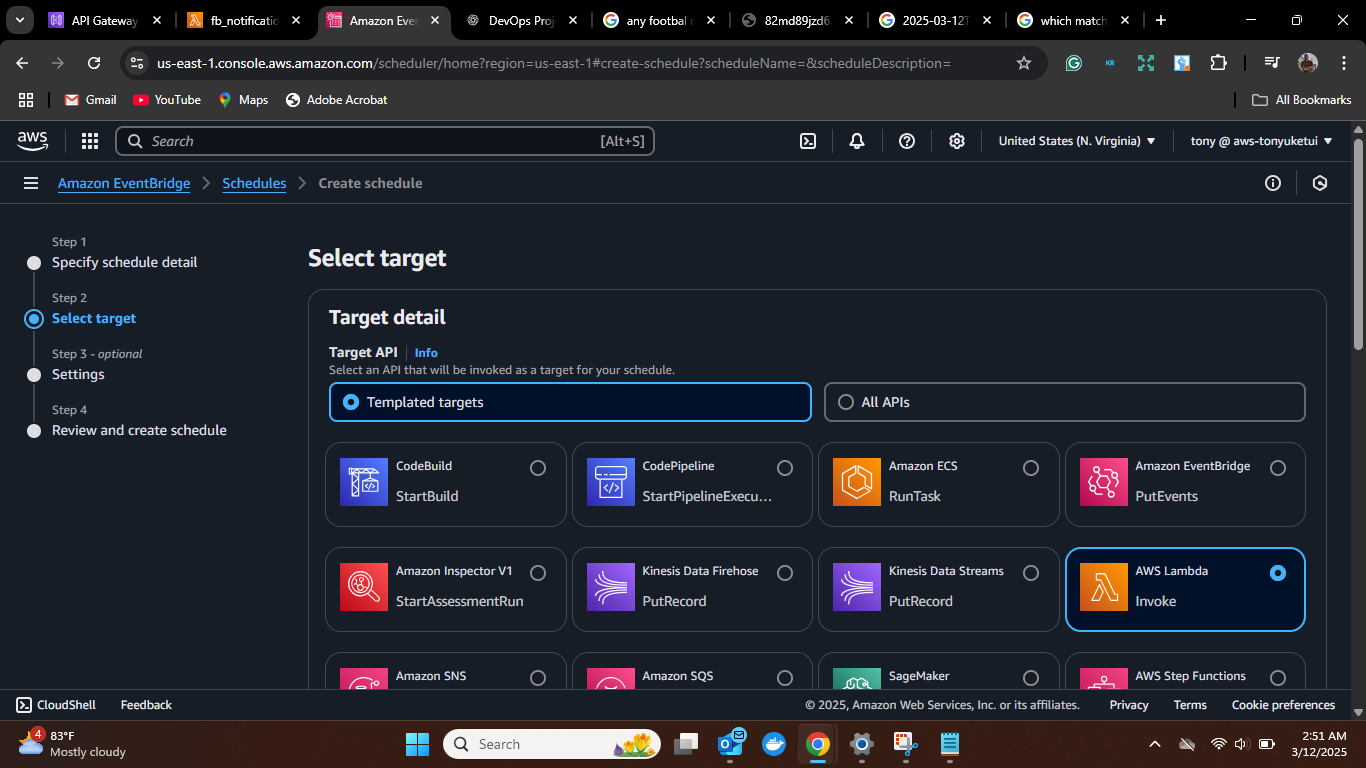
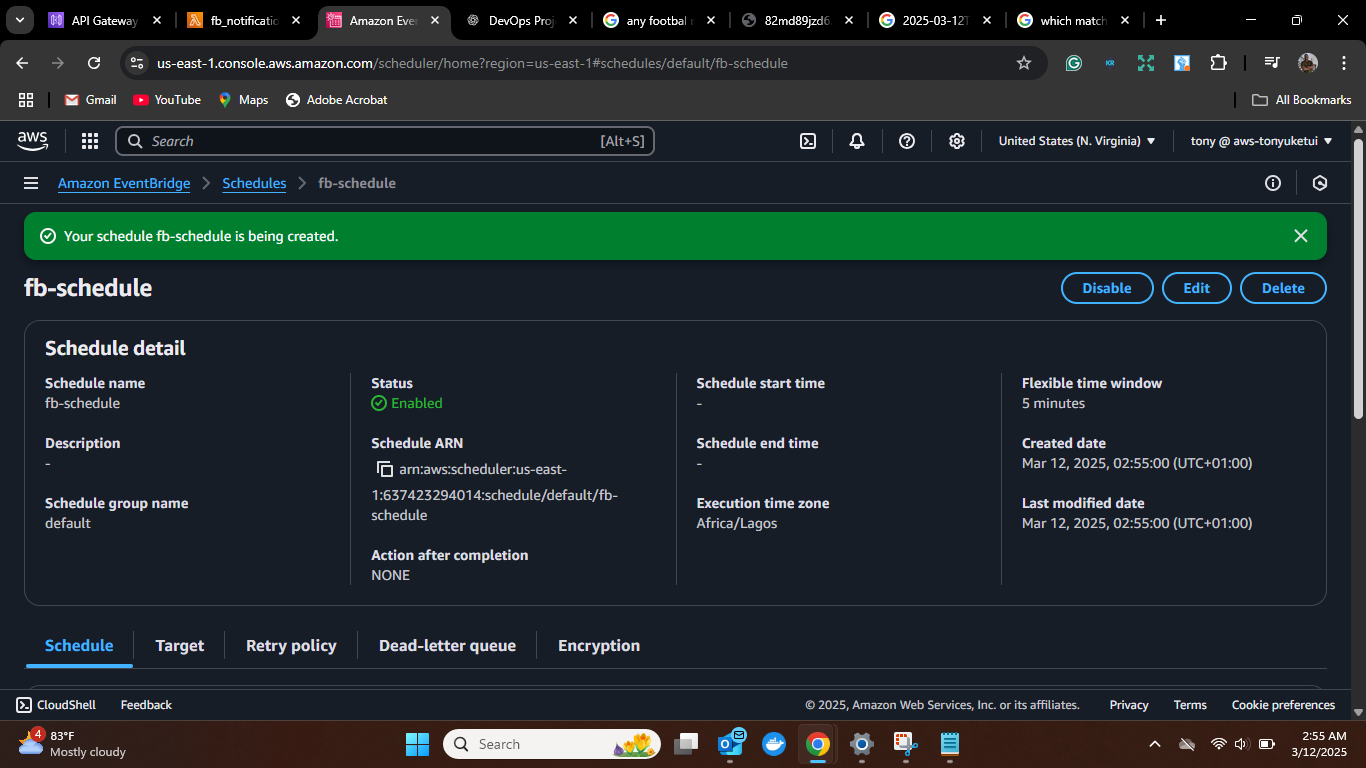
Testing & Results
- Deployed and tested the function manually.
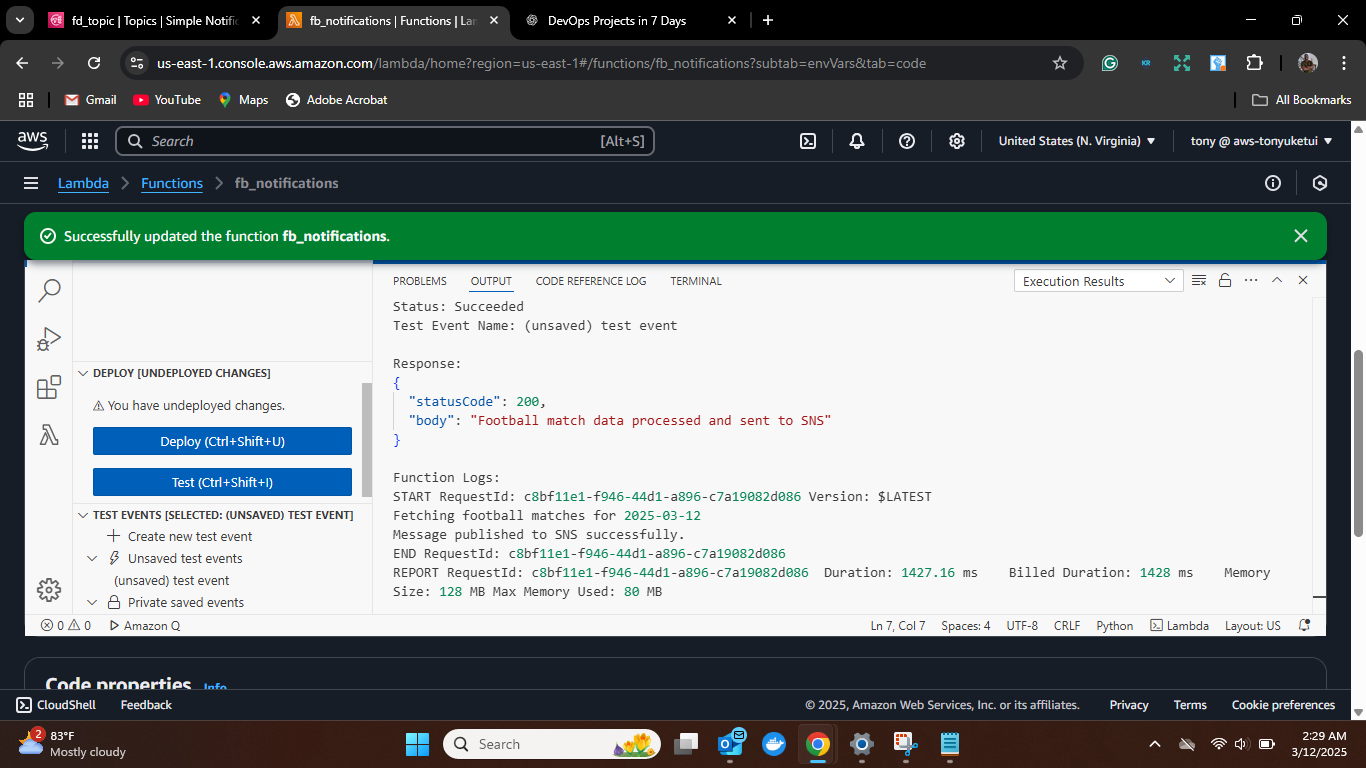
- Verified that SNS successfully delivered email notifications.
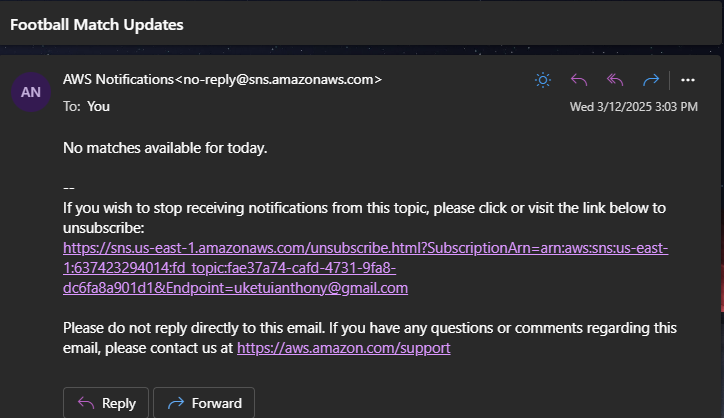
Future Improvements
- Store match schedules in DynamoDB for historical data.
- Extend notifications to SMS or mobile apps.
- Create a User Interface
Conclusion
This project showcases how AWS services can be combined to build an automated notification system. By leveraging Lambda, SNS, and EventBridge, I’ve created a serverless solution that keeps users informed without manual effort.
